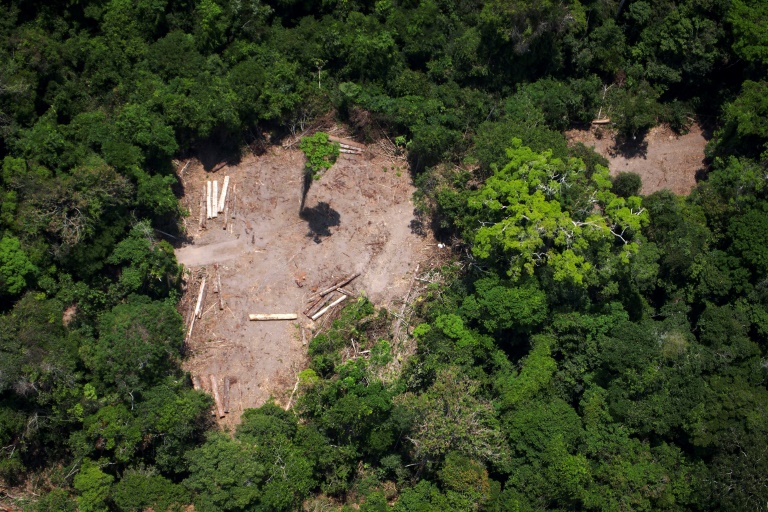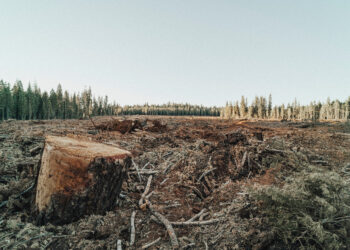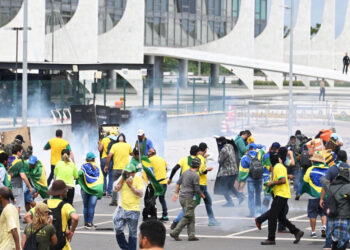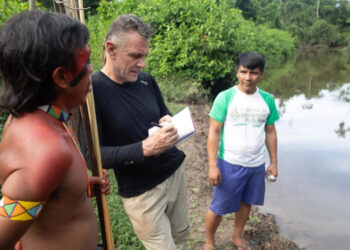Another week passes, and another news story highlights the plight of the Brazilian environment under far-right President Jair Bolsonaro. Last week, the U.N. rights chief linked the murder of the head of the Waiapi indigenous community in Amapa by gold miners to the president’s pro-mining policies. The same week, The Economist’s front page carried the headline Deathwatch for the Amazon – arguing that Bolsonaro’s policies were signaling an incoming “ecological collapse.”
THE ECONOMIST: Deathwatch for the Amazon #tomorrowspaperstoday pic.twitter.com/FKjjkdLXSi
— Neil Henderson (@hendopolis) August 1, 2019
The week before, data showed that deforestation in the Amazon region has reached a fever pitch. Deforestation in June 2019 was 88 percent higher than in June 2018. In the first half of July 2019, it was 68 percent higher than levels over the entire month of July 2018.
The immediate response of Bolsonaro’s administration was denial, before backtracking and accepting the increase. However, this did not stop Bolsonaro from firing the head of the government agency that had revealed this inconvenient fact.
Bolsonaro’s Rhetoric
We can’t say that we weren’t warned. Bolsonaro’s 2018 presidential campaign was peppered with the denial of anthropogenic climate change, promises to withdraw from the 2015 Paris Agreement, pledges to expel international environmental NGOs, and vows to cut state funding for science and technology.
Once taking office, Bolsonaro appointed prominent climate change deniers to head the Ministry of the Environment and the Ministry of Foreign Affairs. These new ministers quickly abolished parts of their departments working on climate change.
It’s worth noting that such rhetoric is not only linked to the environment but also a series of racist attitudes to minorities and indigenous communities in Brazil. In 2017, Bolsonaro stated that “Minorities have to bend down to the majority… The minorities [should] either adapt or simply vanish.”
Within a month of taking office, his government had revealed its plans to expand mega-infrastructure projects – such as roads, dams, and mining – into the Brazilian Amazon region (particularly into territories where indigenous communities live), described by the president’s Chief of Strategic Affairs as an “unproductive, desertlike” region. A key part of this plan is the opening up of indigenous territories, protected under Brazilian law, to mining and other extractive activities.
Brazilian Amazon
Government plans to enroll the Amazon rainforest into national and international markets is in no way a new process. The military junta that ruled Brazil between 1964 and 1985 sought to do so, as did the left-wing governments of President’s Luiz Inacio Lula da Silva (2003-2010) and Dilma Rousseff (2010-2016).
Yet, what is deeply troubling about Bolsonaro’s plans is how they directly contrast with global appeals to slow carbon emissions and protect global carbon sinks, such as the Brazilian Amazon.
The Brazilian Amazon region is the world’s largest rainforest. It is home to expansive carbon stocks (present in both the vegetation and the soil), which are widely understood to have an integral role in future climate change mitigation. As a result, global environmental actors often pay great attention to Brazilian policies towards it. From the Norway-led Amazon Fund to the European Union, Bolsonaro’s policies have raised numerous concerns about the future of the Amazon.
This week, Foreign Policy published an article by Professor Stephen M. Walt that envisaged a scenario in which global powers could use military force to protect the Brazilian Amazon from deforestation and extractivism, which Bolsonaro has come to embody. Clickbait? Probably. Neocolonial? Close. Dangerous? Yes.
Protecting the Amazon
While Walt has since denied that he had suggested invasion as an appropriate international policy move, his article plays directly into Bolsonaro’s hands. Brazil has a long history of simultaneously asserting its sovereignty over the Amazon region while fearing an international conspiracy to steal it from them.
I hope that patriotic Brazilians upset by my FP piece will read it carefully, to see that I was NOT recommending coercion/use of force against Brazil "either now or in the future." Nor was I absolving the US & others of their responsibility for climate change.
— Stephen Walt (@stephenWalt) August 6, 2019
This is a powerful narrative within Brazil – and continues to be. It can be seen in the replies to Walt’s tweet distancing himself from FP’s headline, which has since been changed to Who Will Save the Amazon (and How)? It can be seen in the immediate response from the Brazilian Embassy in Washington, D.C., who labeled the article “an irresponsible exercise of arrogant rhetoric on a serious matter.”
Speaking earlier this week, Bolsonaro argued that the global community hadn’t “realized Brazil is under new management.” He has previously labeled data showing increased deforestation as part of an international smear campaign against both him and Brazil. In his response to global concerns, he argued that “you have to understand that the Amazon is Brazil’s, not yours.”
Enemy of the Environment
Far from generating concern about Brazilian deforestation, the Foreign Policy article, instead, raised the hackles of many – fuelling a nationalist fire that sees any international action on the Amazon as countering Brazilian sovereignty. This places activists in Brazil, already facing an epidemic of violence, at even greater risk.
Rather than toying with the idea of the internationalization of the Amazon region, there are other things that you and I can do.
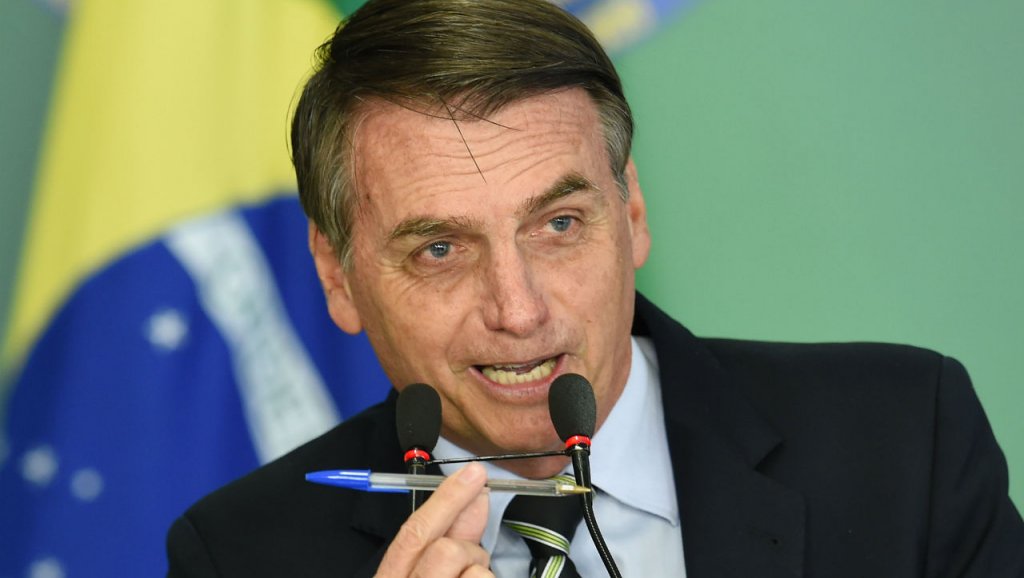
Support Brazilian civil society fighting to protect the environment and empower indigenous communities. Pressure international companies profiting from this opening up of the Amazon region. Understand the role that we – who may feel distant from this rainforest – have in its deforestation.
As the Brazilian journalist Eliane Brum has argued, perceiving the region as nothing more than a distant carbon sink in need of international protection neglects the communities living in the region. It also neglects the role that this deforestation and extraction plays in global commodity flows. To be blunt, your beef and soy come from somewhere.
We need to make sure that if/when Bolsonaro visits your home country, he is persona non grata. That we treat him for what he is: an enemy of indigenous communities and the environment.
Disclaimer: The views and opinions expressed here are those of the author and do not necessarily reflect the editorial position of The Globe Post.

